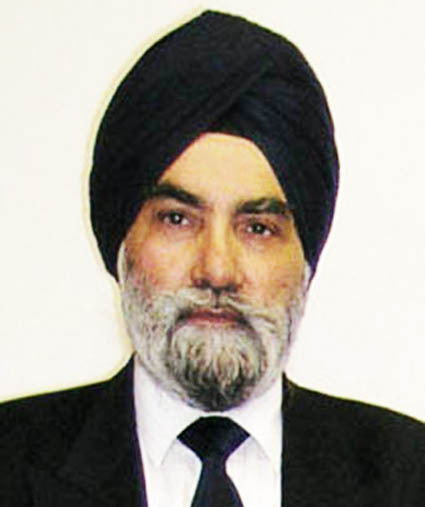Need for Strong Sikh Voice in Indian Parliament to Represent Panth and Panjab

Sikhs have always insisted that any state fit and entitled to demand their allegiance must ab initio recognise and concede its own self-limited character&hellipand they must be approached at state level as a collective group and []]political] entity and they must be governed impersonally, that is, through the rule of law (Sirdar Kapur Singh, The Golden Temple: Its Theo-political Status).
Hindutva nationalism is the reality of the state of India today. Complaints about diaspora Sikh interference in Indian affairs need to be balanced against Indian independence movements spear-headed by the Sikhs from abroad.
In the current and foreseeable nationalist politics and policies of India leading towards an authoritarian state, there is an apparent conflict of Panjab-Panthic interests and those of Sikhs living in other parts of India. Quite rightly, the latter are apprehensive about own future in India. For them, any mention of part or full Sikh autonomy of any sort is too loud. Any demonstration in the diaspora for Sikh rights brings the Sikh Indians in Delhi out in the streets against own fellow Sikhs abroad.
The national status of the Panth predates the creation of India as a nation in 1947. Following armed revolts against oppressive Mughal and colonial regimes, Sikhs have always sought an independent voice through the democratic process in India. In diaspora countries too they are active as a political group, albeit, working with other political parties. In recent years, while Sikh influence in and from Panjab has declined, political Sikh activism in the enlarged diaspora has increased.
Paradoxically, violent Indian state reaction including 1984 Ghalughara, against Sikh political activism demanding language parity, religio-cultural freedom and agro-economic progress in Panjab, has raised the global profile of the Sikhs as a distinct theo-temporal community. Following alleged Indian state sanctioned and sponsored assassination (ref Washington Post) of Hardeep Singh Nijjar in Canada and other similar suspected killing of Sikhs elsewhere, Sikhs have attracted global media attention and understanding. The point is that, the openly partial treatment of Sikhs in Panjab by the successive Indian central governments since 1947 has continually made the Sikh point for them that they should be treated as a distinct political entity because they are being so treated by the Indian state in any case!
Therefore, the continuing Sikh need is to be effectively represented in the Indian Parliament entitled to decide own future through the democratic process. They cannot influence Parliamentary decisions on their own but the Parliament does provide Sikh MPs the opportunity to raise issues of Panjab and Panthic concern and to appeal to the other parties and the global community to seek justice.
In this connection, much discussion is focussed on the election of a suitable candidate from Khadur Sahib. More so with the announcement that Bhai Amritpal Singh, now known globally and at present in a Jail in Assam, is standing for election as an MP. Of course, it is entirely for local Panjabi voters to decide on the basis of personal qualities and standing, who can best represent Panjab and Panthic issues.
While Sikhs can have a voice in the Indian Parliament which will also be heard globally, they can only bring about legislative reforms by working with other Indian parties.
There are lessons for future Sikh politicians from the Indian farmers just cause, led by the farmers of Panjab and enthused by the Sikhi egalitarian spirit
Gurmukh Singh OBE
Principal Civil Servant retd (UK)